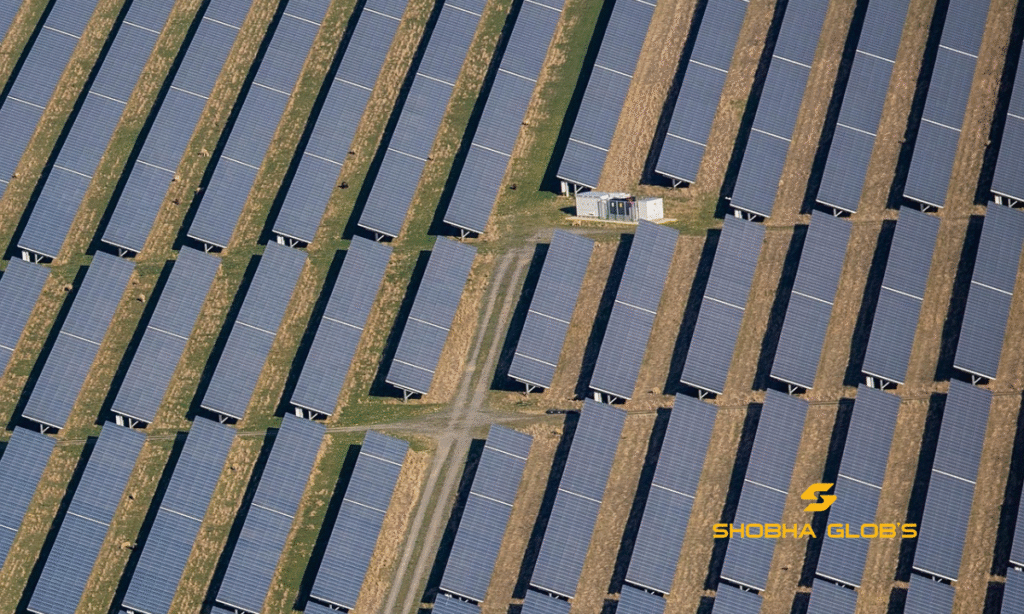Solar Panel Installation Company selection is one of the most crucial steps when you decide to invest in solar energy. It’s not just about buying panels; it’s about ensuring proper design, reliable service, and long-term performance.
The company you choose will determine how much you save, how efficiently your system works, and how hassle-free your solar journey will be.
In this blog, we will share the important things to check before hiring a solar partner, including details about solar panel types, uses, subsidies, and manufacturers in India.
You will also see why working with a professional Solar EPC Company in India is often the smartest choice. By the end, you will know exactly what questions to ask before signing a contract with any installer.
1. Company experience and reputation

The first thing to check is the experience of the solar panel installation company. A company that has been around for years will have handled diverse projects: residential, commercial, and industrial.
For example, if you are planning a solar panel for home, you don’t want to be the company’s trial run. Ask about their previous installations, visit a project site if possible, and check customer reviews. A reputable company is transparent about its work history.
2. Types of solar panels offered
Not every solar panel is the same. Understanding solar panel types is crucial before making a decision.
| Solar Panel Type | Efficiency | Best Use Case | Lifespan |
| Monocrystalline | High | Homes, offices with limited roof space | 25 years |
| Polycrystalline | Medium | Homes and small businesses | 20–25 years |
| Thin-film | Low | Temporary or portable needs | 10–15 years |
A good installer will explain the pros and cons clearly and suggest the right type for your energy needs.
3. Assessing your energy requirements
Before suggesting a system, the company should analyze your electricity usage. For instance, a medium-sized Indian household consumes around 8–12 units per day. A 3–5 kW solar panel installation would usually cover this.
A professional company doesn’t guess; they calculate based on your bill history and future needs, ensuring you get the right system size without overspending.
4. Transparency in proposals
Solar panel companies in India differ widely in their offerings. Some may focus on panel supply, while others provide complete solutions including design, subsidy, and after-sales support.
A reliable company will provide a clear proposal explaining the system size, panel type, expected output, and timeline. This transparency helps you make informed decisions.
Tip: Always compare proposals, not just brands. Look at overall service quality and reliability.
5. Government subsidy guidance
India offers attractive solar panel subsidy options to promote adoption. For residential users, subsidies may cover a significant part of the system cost depending on capacity.
A professional installer in our Solar EPC Company in India will guide you through the application, paperwork, and approvals. This ensures you don’t miss out on benefits that directly lower your upfront investment.
6. Warranty and after-sales service
Solar panels are a 20–25-year investment. That’s why warranty and support are non-negotiable.
Typically, panels come with a product warranty and a performance warranty. Inverters and batteries often carry shorter terms. Make sure the solar panel installation company you choose has a strong after-sales team to handle servicing, cleaning, and repairs.
7. Certifications and product quality
Always check for certification. Many solar panel manufacturers in India are MNRE-approved and BIS-certified. Certified products guarantee performance, safety, and durability.
Installing uncertified panels may reduce upfront expenses but can lead to frequent breakdowns, inefficiency, and shorter life spans.
8. The installation process
A lot of people think solar panel installation is just about placing panels on the roof. In reality, it includes:
- Site inspection and structural analysis
- Designing the layout for maximum sunlight exposure
- Safe mounting and electrical wiring
- Grid connection and testing
Ask your installer how long the process will take. A professional setup may take a few days for residential systems and longer for commercial projects.
9. Financing and payment flexibility
Solar is a long-term investment, and not everyone prefers a lump-sum payment. Good companies offer flexible financing options like loans, EMI plans, or lease agreements.
Transparent payment terms from a solar panel installation company help customers adopt solar without financial strain.
10. Return on investment and long-term savings
Solar is not just about going green; it’s about reducing dependency on grid electricity. A well-installed system provides free power from the sun for decades, making it one of the most rewarding decisions for households and businesses.
Practical tips before finalizing a company
- Compare proposals: Look beyond just equipment cost.
- Check references: Visit a past project if possible.
- Plan ahead: ask if your system can be expanded later.
- Don’t rush: Review all warranties and certifications carefully.
Final Thoughts
Choosing the right solar panel installation company is a decision that shapes your energy journey for the next 25 years. From panel types and subsidy guidance to warranty and installation quality, every detail matters.
Partnering with a professional solar EPC company in India guarantees not only efficiency but also peace of mind, since they handle everything from start to finish.
At Shobha Globs, we believe solar is more than just an alternative; it’s the future. By working with the right partner, you can save energy, secure independence, and contribute to a cleaner tomorrow. Let’s take that step forward together.
FAQs About Hiring a Solar Panel Installation Company
Q1. What should I check before choosing a solar panel installation company?
Look at experience, certifications, transparency, warranty, and subsidy support. These ensure the company delivers safe, efficient, and long-lasting solar solutions for your needs.
Q2. Which solar panel types are best for homes?
Monocrystalline panels are the most efficient and long-lasting. Polycrystalline panels are budget-friendly, while thin-film panels suit small, temporary, or portable energy requirements.
Q3. Can solar panels work for all types of homes?
Yes, solar panels can be installed on most rooftops, provided there is enough space and sunlight exposure. A site survey helps confirm feasibility and optimal design.
Q4. Do homeowners get a solar panel subsidy in India?
Yes, residential users can avail subsidies depending on system size and government policy. The installer usually assists with the entire application and approval process.
Q5. Why hire a solar EPC company in India instead of a local installer?
An EPC company manages everything: design, procurement, installation, subsidy, and maintenance. This guarantees professional service, better performance, and peace of mind over the system’s lifetime.

